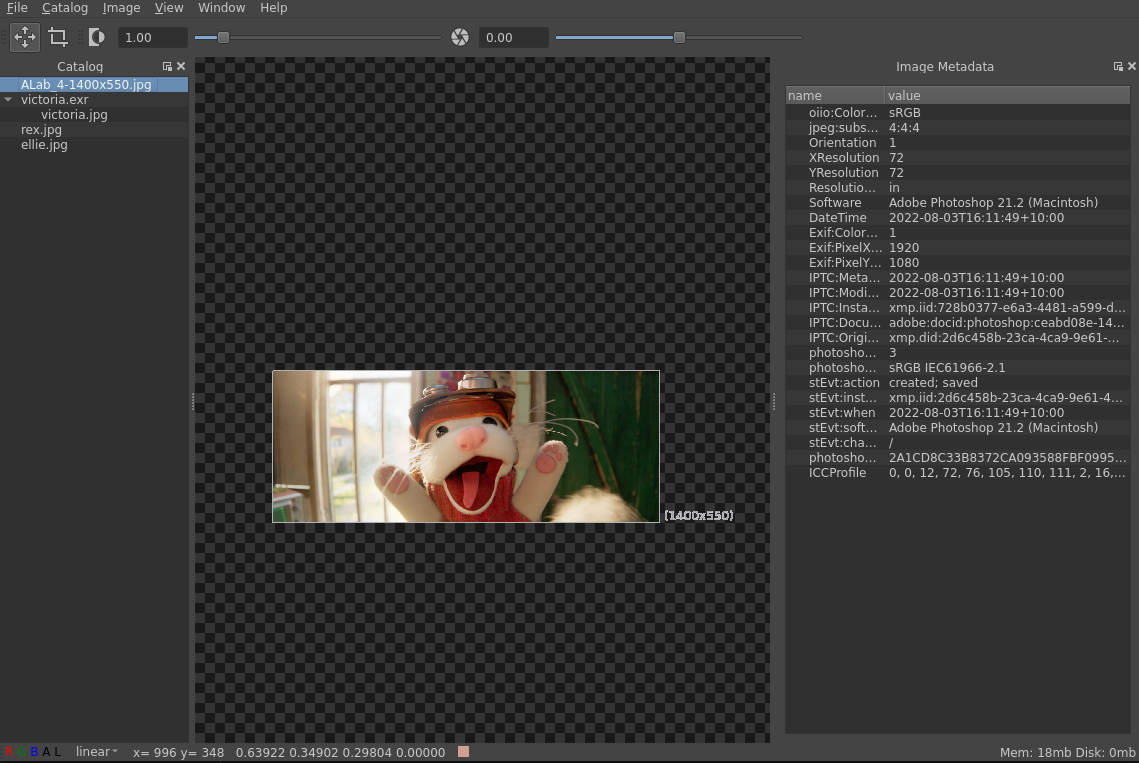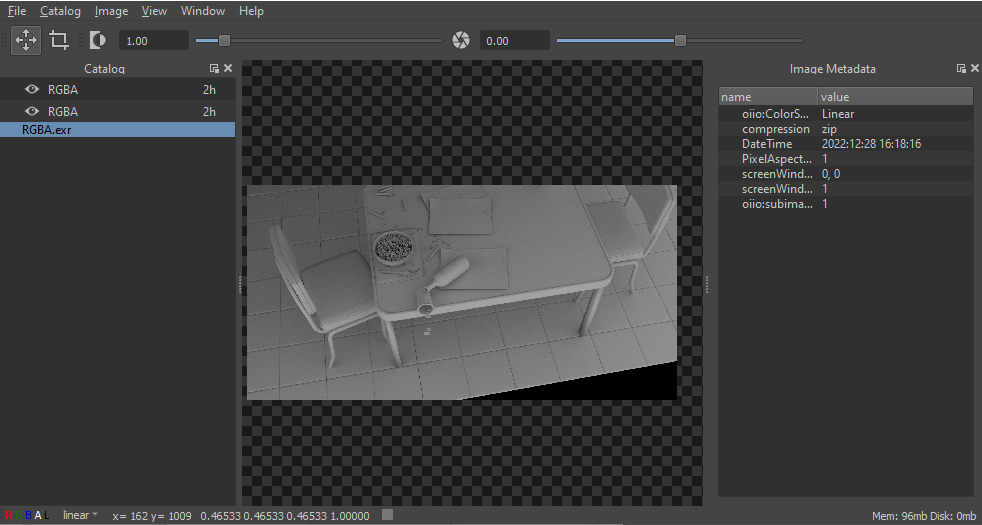Render View window¶
The Render View window provides a comprehensive interface for visualizing and managing rendered images and image sequences. Its features encompass image viewing and navigation, manipulation and analysis, workflow integration, and customization options. Users can adjust display parameters, navigate through sequences, compare images, and utilize various tools for in-depth image analysis.

The Render View also facilitates workflow integration by providing access to rendering controls and feedback mechanisms. Furthermore, the interface is customizable, allowing users to tailor the workspace to their preferences and needs.
Workflow Integration¶
The Render View tightly integrates with the rendering pipeline, providing real-time feedback and control over the rendering process. It receives continuous updates from the renderer, displaying progressive refinements as they become available.
The Render View supports Arbitrary Output Variables (AOVs). Users can select and display individual AOVs or combine them in custom views. AOVs are visualized using appropriate color mappings and can be adjusted using the image manipulation tools.
Interactive Production Rendering (IPR) is also supported, enabling real-time feedback during scene editing. Changes made in the scene are immediately reflected in the Render View, facilitating iterative adjustments and fine-tuning. IPR updates are displayed progressively, with recently updated regions clearly marked. Users can control IPR settings, such as update frequency and region of interest, within the Render View’s preferences.
Render View Regions¶
Working with the images data is performed using the following regions: Viewport, Catalog, Image Metadata, top-bar and status bar.

- Catalog
The Catalog lists the images added to the current session both rendered and loaded from disk, the selected image displays in the Viewport Interface.
- Image Metadata
Shows metadata for the selected image.
- Viewport Interface
This panel displays the image selected in the Catalog panel. The displayed image can be edited using Render View tools provided in the quick access panel. The workspace can be changed using the View menu.
- Status Bar
Provides information about the current Viewport state, including the active color channel, color profile, cursor position (global and image-relative), and an eyedropper tool. A top bar provides additional controls and settings.
Catalog¶
In this panel, all files loaded into Render View during the current session are displayed: whether rendered or opened from disk opened using “Open File..”. The selected file in the Catalog is displayed in the Viewport Interface.
The Catalog supports drag-and-drop functionality for easily adding images. Users can drag image files from their file manager or other applications directly into the Catalog area. The Render View will automatically recognize supported image formats and add them to the current session.
Users can drag and drop images onto other items in the Catalog to create nested groups. This allows for hierarchical structuring of images, for example, grouping AOVs related to a specific render or organizing images.
Render View Tools¶
Using the tools in the Render View window toolbar, users can move the camera relative to the image, crop, and adjust gamma and exposure values.

Icon |
Purpose |
|---|---|
|
Pan Tool |
|
Crop Tool |
|
Gamma |
|
Exposure |
Render View Window Preferences¶
Option |
Description |
|---|---|
Language |
The Interface Language |
Scratch Image Location |
The directory where preview images are stored when the number of images exceeds the Cache Size limit. |
Image Cache Size |
The maximum number of images that can be stored in the cache before they are automatically written to the temporary folder defined in the “Scratch Image Location”. |
Burn In Mapping on Save |
The standard state of the attribute on running Render View. Ensures that current view mapping is embedded into images saved via “Export File…” |
Default Color Space |
Sets the color space for newly opened or created images. |
Default Display View |
Determines initial image display settings. |
This panel also has Hotkeys tab, which allows to bind the Render View actions.



